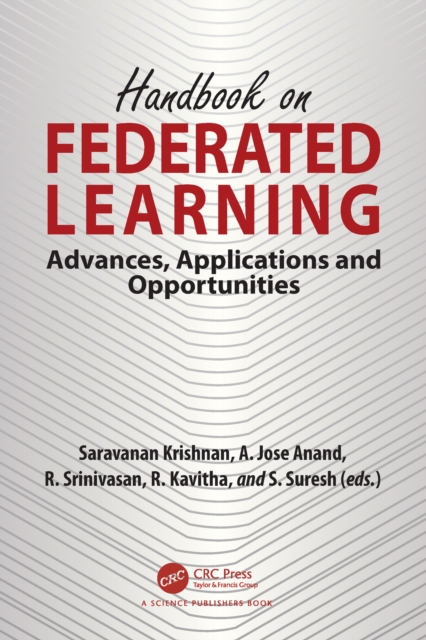
Handbook on Federated Learning : Advances, Applications and Opportunities PDF
Edited by Saravanan (Anna Uni. Regional Campus) Krishnan, A. Jose (KCG College of Technology, India) Anand, R. (VelTech Rangarajan Dr Sagunthala R&D Ins of Sci and Tech, India) Srinivasan, R. (Vel Tech Rangarajan Dr.Sagunthala R & D Ins of Sc and Tech, India) Kavitha, S. (KPR institute of Engineering and Technology, India) Suresh
Description
Mobile, wearable, and self-driving telephones are just a few examples of modern distributed networks that generate enormous amount of information every day.
Due to the growing computing capacity of these devices as well as concerns over the transfer of private information, it has become important to process the part of the data locally by moving the learning methods and computing to the border of devices.
Federated learning has developed as a model of education in these situations.
Federated learning (FL) is an expert form of decentralized machine learning (ML).
It is essential in areas like privacy, large-scale machine education and distribution.
It is also based on the current stage of ICT and new hardware technology and is the next generation of artificial intelligence (AI).
In FL, central ML model is built with all the data available in a centralised environment in the traditional machine learning.
It works without problems when the predictions can be served by a central server.
Users require fast responses in mobile computing, but the model processing happens at the sight of the server, thus taking too long.
The model can be placed in the end-user device, but continuous learning is a challenge to overcome, as models are programmed in a complete dataset and the end-user device lacks access to the entire data package.
Another challenge with traditional machine learning is that user data is aggregated at a central location where it violates local privacy policies laws and make the data more vulnerable to data violation.
This book provides a comprehensive approach in federated learning for various aspects.
Information
-
Download - Immediately Available
- Format:PDF
- Pages:362 pages, 17 Tables, black and white; 14 Illustrations, color; 77 Illustrations, black and white
- Publisher:Taylor & Francis Ebooks
- Publication Date:15/12/2023
- Category:
- ISBN:9781003837503
Information
-
Download - Immediately Available
- Format:PDF
- Pages:362 pages, 17 Tables, black and white; 14 Illustrations, color; 77 Illustrations, black and white
- Publisher:Taylor & Francis Ebooks
- Publication Date:15/12/2023
- Category:
- ISBN:9781003837503






